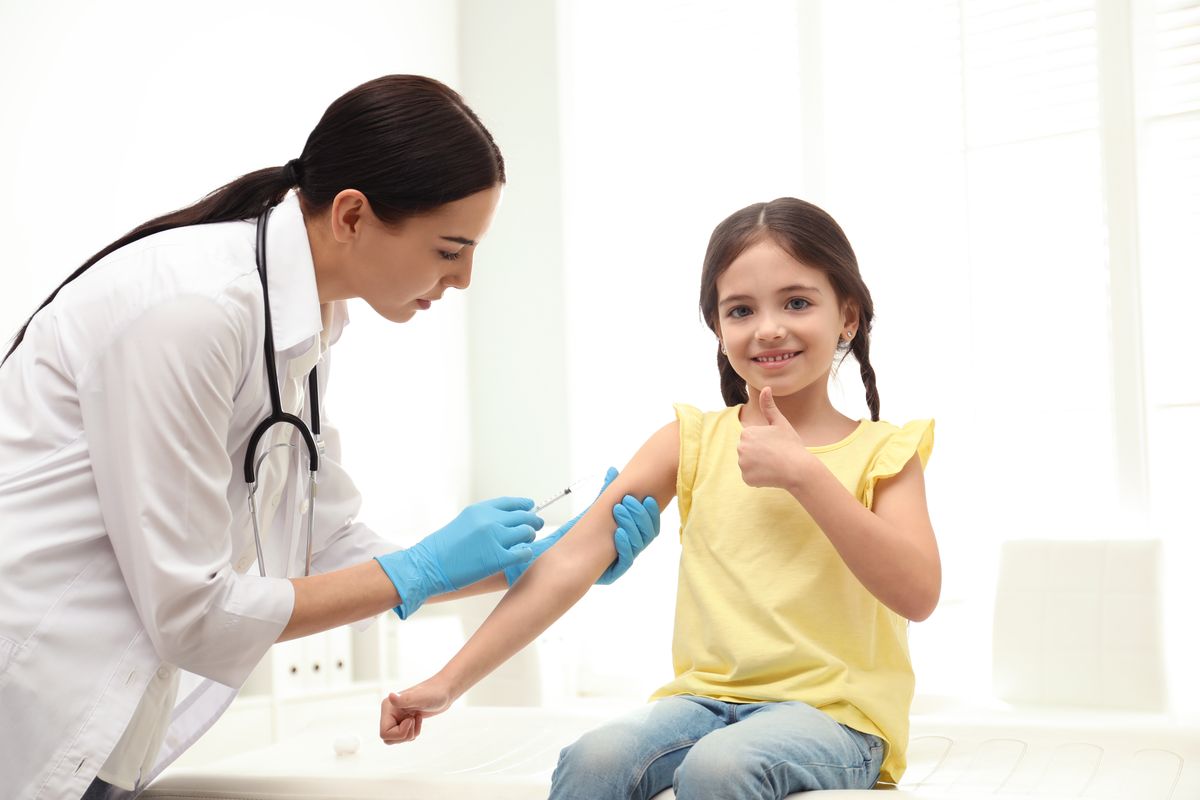Pertussis, commonly known as whooping cough, is a serious bacterial disease that attacks the respiratory system. It is caused by the bacterium Bordetella pertussis, which infects the respiratory tract and causes severe coughing attacks. The disease is particularly dangerous for infants and young children, who are most at risk of its serious complications.
Infants up to six months of age are particularly susceptible to whooping cough because their immune systems are not yet fully developed and most have not yet received the full series of vaccinations against the disease. This makes them particularly vulnerable to serious complications such as pneumonia, breathing difficulties and even brain damage caused by constant, intense coughing.
Symptoms
Recognising whooping cough at an early stage is crucial, but can be a challenge as its symptoms gradually develop and often resemble the common cold. At the beginning of the illness, patients may experience a runny nose, a mild cough and a slight fever. These symptoms can be confusing, especially at times when other respiratory infections are common.
However, after about 1-2 weeks, the symptoms of whooping cough move into a more intense phase that is more characteristic of the disease. This begins a series of intense, rapid coughing fits that are difficult to control and can be extremely fatiguing. These coughing fits often end with a loud wheezing sound, known as 'whooping cough'. This specific sound is the result of trying to catch your breath after a series of coughs.
During this period, coughing can be so severe that it leads to vomiting and can even cause temporary loss of consciousness. In children, coughing fits can be so intense that they cause facial bruising or momentary pauses in breathing. In addition, coughing often intensifies at night, which can disrupt sleep.
In addition, in infants and young children, symptoms may be less pronounced and do not always include the typical wheezing typical of whooping cough. In such cases, infants may experience apnea, or temporary respiratory arrest.
Dissemination
Pertussis, which is one of the most contagious bacterial diseases, is transmitted between people mainly by the droplet route. This transmission mechanism means that the Bordetella pertussis bacteria, responsible for causing whooping cough, is spread through the air by tiny droplets secreted when an infected person coughs or sneezes. Unfortunately, this means that whooping cough can easily spread in public places such as schools, kindergartens and public transport.
One worrying aspect of whooping cough is that an infected person can start infecting others as early as the first week of the onset of symptoms, or even during the incubation period, i.e. before the first symptoms of the disease appear. This means that infected people can unknowingly pass the bacterium on to others before they even notice the first signs of illness in themselves.
Children are particularly vulnerable to infection, especially those who have not yet been vaccinated against pertussis. Infants who have not yet completed a full vaccination course are particularly susceptible to infection and may experience more severe effects of the disease. For this reason, vaccination is a key element in preventing the spread of pertussis, protecting not only vaccinated individuals, but also creating what is known as herd immunity, which helps protect those who, for various reasons, cannot be vaccinated.
Vaccination
Vaccination against pertussis plays a key role in preventing the spread of the disease, being one of the most important achievements of modern medicine in the fight against infection. The inclusion of pertussis vaccine in the standard childhood vaccination calendar has a significant impact on public health, reducing the number of cases and mortality associated with the disease.
Pertussis vaccination is usually given in combination with other vaccines, facilitating comprehensive protection against several diseases simultaneously. In this way, vaccinated individuals not only gain direct protection against pertussis, but also contribute to the creation of herd immunity. This immunity is extremely important because it protects people who, for various reasons (e.g. age, allergies, medical contraindications), cannot be vaccinated. Thanks to widespread immunisation, pertussis is becoming increasingly rare, resulting in an overall improvement in community health.
Despite high vaccination coverage, cases of whooping cough continue to occur, highlighting the need to maintain high levels of awareness and vaccination coverage in the population. Awareness and education campaigns targeting parents, caregivers and entire communities are key to maintaining and increasing vaccination rates, which is essential to maintain herd immunity and protect the most vulnerable population groups.
In the global context, pertussis vaccination programmes are a fundamental element of public health strategies to eliminate this disease as a health problem. The success of these programmes depends on their continuity, the availability of vaccination to all segments of society and the commitment of medical professionals to the promotion and implementation of vaccination.
Treatment and complications
Treatment of whooping cough requires an individual approach, tailored to the age of the patient and the severity of symptoms. For mild forms of the disease, adequate rest and attention to hydration may be the basis. However, in situations where symptoms worsen, antibiotics are necessary. Such action not only shortens the period during which the patient is infectious, but also contributes to symptom relief. It is crucial that therapy is started as soon as possible after the disease is identified, which increases the chance of a rapid and effective response.
Although most people pass whooping cough without long-term consequences, the disease can lead to serious complications, especially among infants and immunocompromised individuals. Among the most notable are pneumonia and chronic cough, which can significantly reduce quality of life. In extreme, albeit rare, cases, more serious complications can occur, such as brain damage caused by hypoxia. This is why it is important not to underestimate the importance of early detection of whooping cough, appropriate and prompt therapeutic response and, above all, prevention through vaccination.

